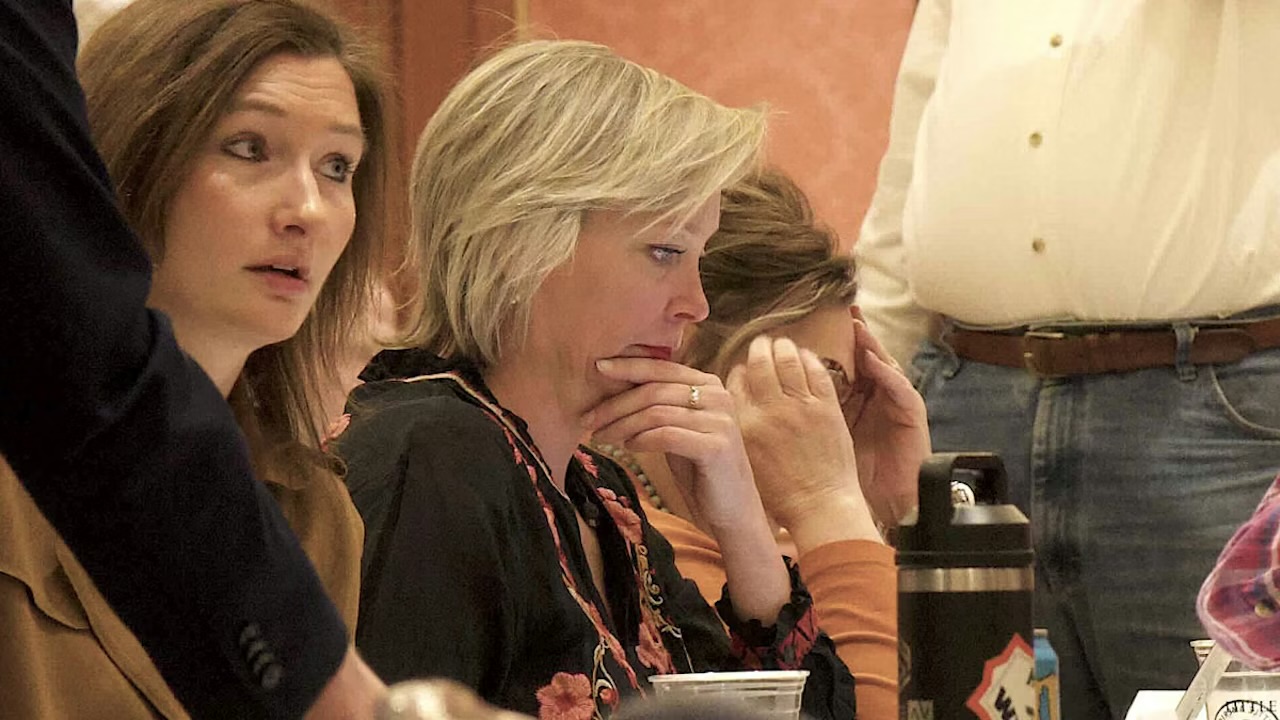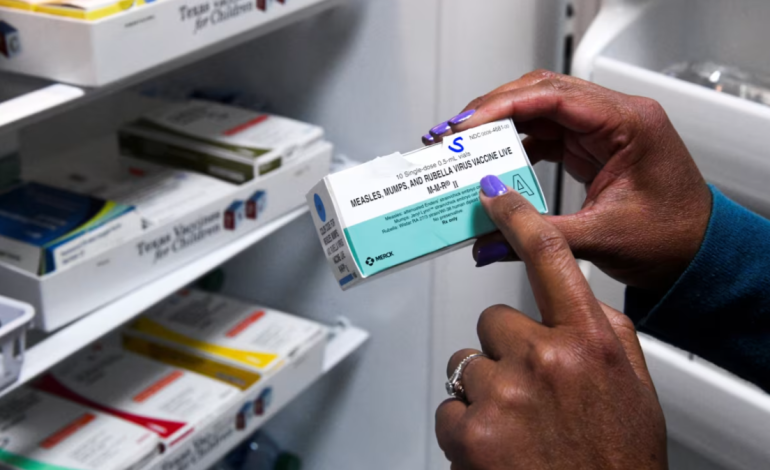The United States has recorded more measles cases so far in 2025 than in any other year since the disease was declared eliminated in the country in 2000, according to new data released by the Centers for Disease Control and Prevention (CDC).
The surge coincides with the US Senate Health Committee’s narrow vote to advance President Donald Trump’s nominee to lead the CDC, a development that is drawing heightened attention due to the nation’s falling childhood vaccination rates.
As of mid-year, the CDC has confirmed at least 1,288 measles cases, surpassing the previous post-elimination peak of 1,274 in 2019. Over 90% of these cases involved individuals who were either unvaccinated or whose vaccination status was unknown.
The rise in cases is especially concerning given that measles, a highly contagious viral illness, had been largely controlled in the US through widespread immunization. Experts now warn the country could lose its measles elimination status if sustained transmission continues — a symbolic but significant milestone signaling a public health setback.
The growing outbreak is being linked to a decline in childhood MMR (measles-mumps-rubella) vaccination coverage, which dropped during the COVID-19 pandemic and has yet to fully recover. CDC data shows the national MMR vaccination rate for kindergartners in the 2023–2024 school year was about 93%, below the 95% threshold needed for community protection. Some areas have far lower coverage — in Gaines County, Texas, the epicenter of the current outbreak, just 82% of children were vaccinated.
Experts are concerned this trend may lead not only to more measles cases but also to the resurgence of other vaccine-preventable diseases such as pertussis and meningitis.
The Senate Health, Education, Labor and Pensions Committee voted 12–11 along party lines to advance Dr. Susan Monarez, President Trump’s nominee for CDC director. A seasoned government scientist and immunologist, Monarez testified in her confirmation hearing about restoring trust in public health and improving data systems. However, her confirmation has taken place in a politically sensitive environment shaped by public skepticism toward vaccines and leadership changes at the Department of Health and Human Services (HHS).
Current HHS Secretary Robert F. Kennedy Jr., a longtime critic of some vaccine policies, has sparked concern among health professionals for his reshuffling of the CDC’s vaccine advisory committee and his rhetoric around immunization.
Sen. Bill Cassidy (R-La.), a physician and chairman of the Senate committee, supported Monarez’s nomination, noting the importance of her leadership during a growing public health threat.
“This is especially crucial as the nation combats reemerging public health threats like measles,” he said.
However, Sen. Patty Murray (D-Wash.) criticized the committee’s lack of oversight amid the ongoing outbreak.
“We haven’t had a hearing on the record-breaking number of measles cases or on the reorganization of the CDC’s vaccine panel,” she said, voting against Monarez while urging more accountability.
The measles virus can cause severe complications, particularly in young children, including pneumonia, brain swelling, and — in rare cases — death. Three deaths have been reported in 2025: two unvaccinated children in Texas and one unvaccinated adult in New Mexico.
Experts warn the outbreak’s effects could extend beyond the immediate illness. Measles can induce “immune amnesia,” reducing the body’s ability to fight off other diseases long after recovery. It may also, in rare cases, lead to a deadly neurological condition years after infection.
The current outbreak began in a Mennonite community in West Texas and has since spread to at least 38 states. Public health officials say they are concerned not only about the scale of the outbreak but also the underlying erosion of public trust in vaccines.
In a statement Wednesday, HHS reaffirmed support for measles vaccination but framed the decision as a personal one:
“CDC continues to recommend MMR vaccines as the best way to protect against measles. The decision to vaccinate is a personal one.”
This framing reflects the language often used by Secretary Kennedy and has drawn criticism from medical professionals who argue that clear, evidence-based messaging is critical in managing outbreaks.
Dr. Richard Besser, former CDC acting director and president of the Robert Wood Johnson Foundation, warned:
“The current outbreak reflects a failure of leadership. Vaccine misinformation is fueling lower immunization rates and enabling the return of preventable diseases.”
Health experts also highlight that public health funding cuts have weakened local responses. Dr. Jennifer Brull, president of the American Academy of Family Physicians, emphasized:
“Vaccines are one of the most powerful tools we have to protect patients and communities. We must continue to defend science and public health.”
The US is not alone in its struggle. Measles cases have surged globally, with record outbreaks reported in Canada, Mexico, and across Europe. Experts say the international rise, combined with increased travel, provides more opportunities for the virus to enter the US and find unvaccinated populations.
“This is the new normal unless we raise vaccine coverage,” said Dr. Michael Osterholm, an infectious disease expert at the University of Minnesota. “The virus is waiting for gaps to exploit.”
CNN and the New York Times contributed to this report.










The latest news in your social feeds
Subscribe to our social media platforms to stay tuned